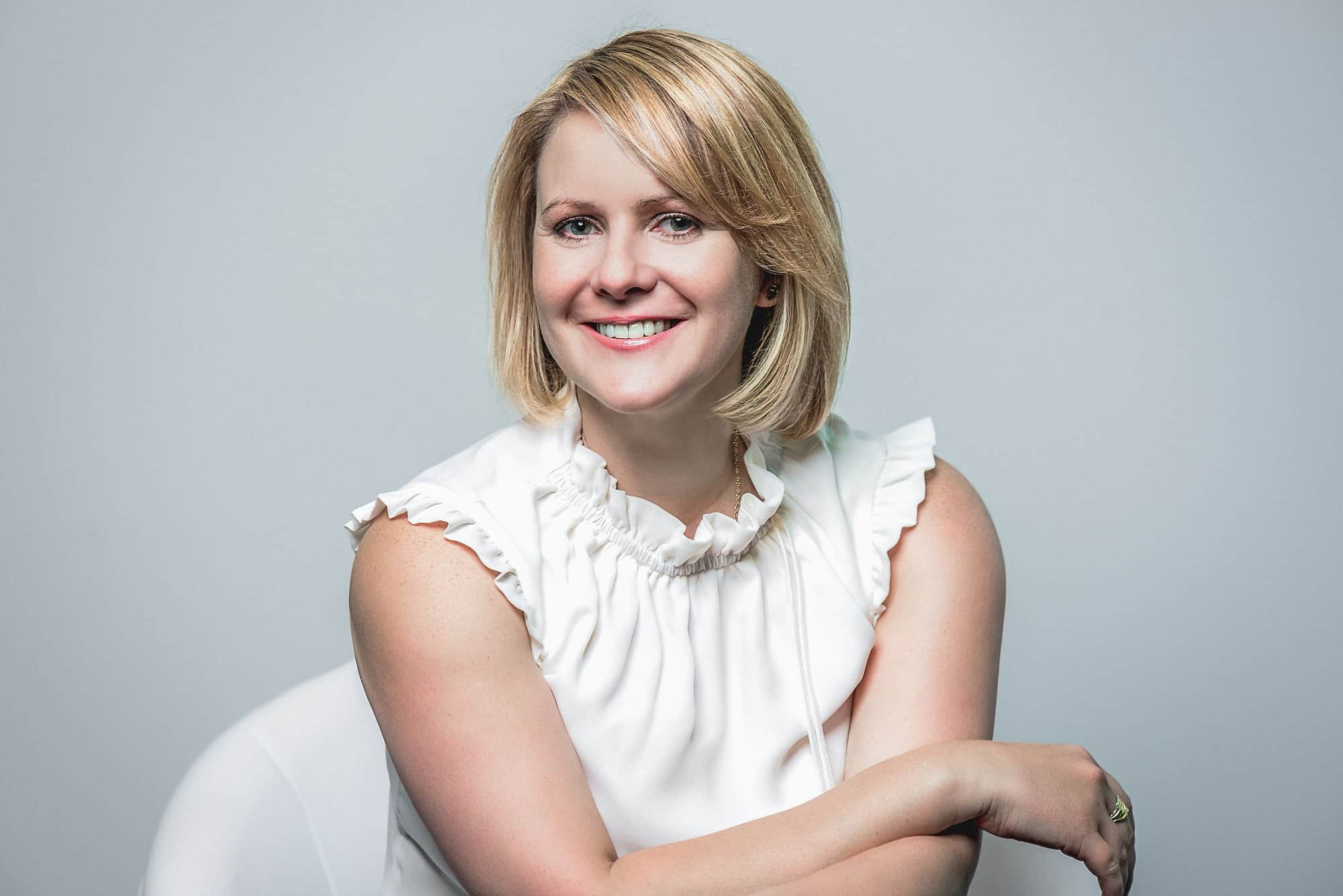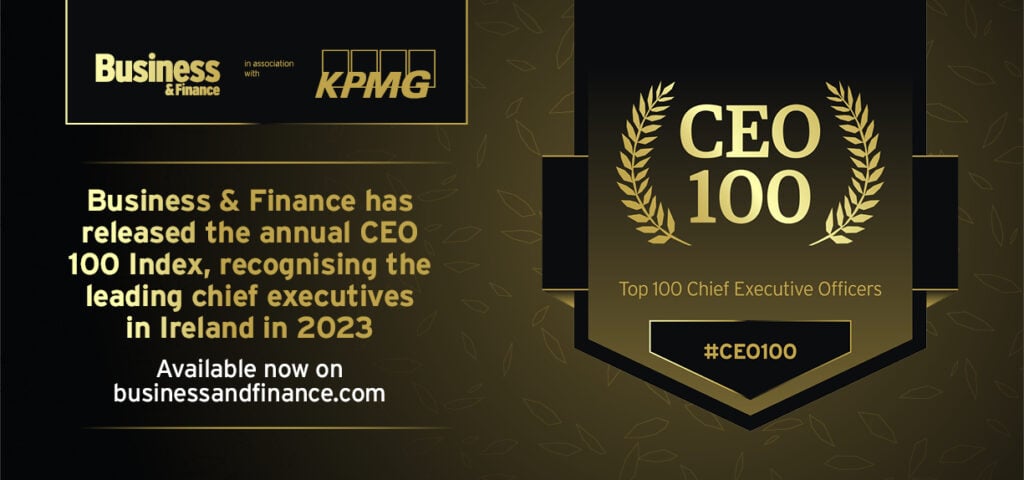Sinéad Doherty, CEO, Fenero
Sinéad Doherty, CEO of Fenero, talks the Fenero brand, the future of work and tax services in the freelance space.
Q. What are your main priorities and goals in your role?
Currently my focus is on three key areas: the Fenero brand, our technology and our people.
The Fenero brand is gaining real industry recognition, particularly over the past 18 months due to a concerted effort to raise the profile of the business. This in turn builds loyalty and trust and helps give us a competitive edge. The financial services sector is a busy one, and differentiation is critical. Specialisation, which is a route we have taken, has really helped, but it’s vital that a business keeps developing its brand and that means continually driving brand awareness and building brand equity.
Clients want more from their accountant than a basic tax return and that is where technology and people come in to play and there is actually a symbiotic relationship between the two. We have made huge investments in technology, building bespoke IT systems and thereby enabling our teams to give more of their time and expertise to our clients. Technology makes both our business and our service more efficient whilst also helping to improve the client experience, and it will remain a priority for our business for the foreseeable future.
When it comes to our service offering, it’s ultimately our people that will set us apart from our competitors and that means selecting, retaining and training the right people in the right areas and at the right time. As technology and automation can now do much of the initial number crunching, we need people who are not just fantastic with the financials, but who are also great communicators and advisors. As our business has evolved, so too have the skills required of our teams.
Q. What are your biggest challenges as a CEO?
The biggest challenge, which is one faced by most of the business leaders I know, is that of talent management. We have a fantastic team at Fenero but the business is growing quickly, our business needs are changing and staff development has to be a part of this whole evolution.
We have to keep up with the pace of change and we have to be always poised and ready for growth. This means that training and development are very much part of our modus operandi.
Coupled with this is the challenge of ensuring that the inherent culture of the company does not change as it gets bigger. We are a very employee-focused company and have been recognised for our forward-thinking, award-winning Employee Wellbeing Programme. But I have to ensure that we get the right balance between performance and purpose and a culture of well-being and fun, and this requires a lot of attention and effort. However, I believe that these are two sides of the same coin in that well-being is a factor in great performance, and that great performance adds hugely to a sense of personal fulfilment and well-being.
Q. How do you keep your team/staff motivated?
As a management team, we are committed to the continuous improvement of both the company and our people.
There are great opportunities for anyone who is also committed to improving and developing their skills and contributing to the business. We offer paid external study supports and in-house L&D and mentoring programmes, for example, which have been really well received by the team at Fenero.
Since the foundation of the company, myself and my husband/business partner David have always been focused on building a company with a very open, supportive culture and strong sense of team. We find that this kind of working environment is an important motivator not only for the team, but also for ourselves.
And these very same things motivate me; I love to learn, to take on new challenges and to work towards achieving them, working alongside people I admire and value.
Q. What are the challenges facing your industry going forward?
On the theme of future of work, the variations in the ways we work have really changed in recent years. There are now more contractors and freelancers then ever before, together with those who are classed as gig economy workers. Governments and regulators need to keep up with changing realities. The increased adoption of the gig economy model will result in a need for changes to rules and definitions regarding what a contractor/freelancer or worker is, to ensure clarity and protection for workers and business owners alike. The gig economy model offers great flexibility and opportunities for both businesses and individuals, but we need to improve our supports and protections around this. The fact that self-employed people do not have the same social welfare entitlements as employees is one example of government policy that impacts upon the willingness of people to avail of different financial opportunities in the contracting and freelancing sectors. This holds back the individual and the whole economy.
Q. What new trends are emerging in your industry?
Whilst accounting and finance is considered something of a traditional industry, technological changes have really transformed and improved our sector and I’m excited by the pace of this technological change.
Cloud computing, optical character recognition (OCR) technology, mobile accounting and innovations in tax software have all impacted positively on both the business and on our clients, and the trend is towards continued advancements in this area.
Another trend is in how people are choosing to work, whether selecting the hours that suit them, contracting for fixed-term projects, hot-desking or working from home. People are looking for more flexible arrangements in how they can do the work that they love. It’s hard to predict exactly what’s next, but new ways of working is an emerging, dynamic and hugely interesting trend.
With more people choosing to work as freelancers or contractors, we anticipate that this trend will have a positive impact on the business and present us with continued opportunities for growth.
Q. Are there any major changes you would like to see in your sector?
My answer relates to earlier responses around the evolution of the worker and the emergence of a new category of worker that has yet to be properly recognised by government.
I would like to see legislation and Revenue recognise and embrace these individuals for the good they are doing for our economy, instead of creating obstacles and even punishing them. By this I mean not providing for equal social welfare benefits or by unfairly restricting the claiming of valid business expenses, an issue that has impacted the contracting sector in the last few years. This is not an exclusively Irish issue. There are controversial changes and debates ongoing in the UK on the subject of contractor expenses and protections also.
Q. As an employer are you finding any skills gaps in the market?
To date we have not had trouble recruiting for the various roles that have been available in our company. Payroll and accounting are popular career choices. That said, highly experienced personal tax specialists can be hard to come by and a lot of the bigger firms are holding on to who they have by offering strong remuneration packages. It can be difficult for SMEs to compete but so far, we’ve had no insurmountable problems.
Q. How did your strategy develop in the context of the banking crisis and economic crisis?
Our business was in its infancy at the height of the financial crisis, so we grew the business from nothing in a very cost-consciousness manner. Because we started in 2008 we were operating in a market that was hugely value-driven, so we had to ensure that our offering was in line with market demands. That was our strategy then and we have worked hard to maintain the same value-driven strategy, which means that our clients have continued to benefit from a real value-added offering.
Q. How will Brexit affect you, or have you started to feel the effects already?
The skills shortage in some sectors in Ireland, coupled with Brexit, means that we are seeing an increased interest in people from the UK taking up work in Ireland. We are currently working with a number of leading Irish and UK recruitment agencies and businesses, helping them to deal with the tax issues that arise for overseas contractors coming to work in Ireland. This allows recruitment agencies to increase their candidate pool and helps growing businesses to fill the specialist roles needed to enable their company to keep expanding. So in our sector we are seeing opportunities for both businesses and individuals as a result of Brexit.
Q. How do you define success and what drives you to succeed?
You can define business success in so many ways – turnover, profit, growth, client satisfaction and happy staff. But ambitious business owners will always strive for more, so I’m not sure that we ever fully allow ourselves to define success, because we just keep setting the bar that little bit higher. However, I believe that Fenero has reached the first rung on the ladder of success as I have reached a stage whereby I can now work on, rather than in, the business. This means that we are experiencing organic growth, with the right people behind it. However, there’s no room for complacency and this position of relative success is allowing me to focus on business development and planning our future strategy, and, ultimately, our long-term success.
Q. What’s the best advice you’ve been given, or would give, in business?
Begin with the end in mind (businessman and author, Stephen Covey).
This advice points to how easy it is to get caught up in an activity trap and the day-to-day busyness of life. You can work harder and harder at climbing the ladder of success, only to then discover that it’s leaning against the wrong wall – so begin with the end in mind.
Q. What have been your highlights in business over the past year?
It’s been a year of many highlights for Fenero. Firstly, we have consolidated a growth period that doubled the size of the business both in terms of staff numbers and turnover. Much of our business comes from recruitment agencies and we have significantly grown the number with which we work, both in Ireland and the UK.
We have also implemented the first version of a bespoke IT system that will be transformational for the business over the next 18 months. In terms of our people, we introduced a new learning and development programme which includes coaching and mentoring for the senior leadership team. This is supporting the growth of our people and the business, and means we can take on more new challenges.
Q. What’s next for your company?
We will continue to invest in technology as we know that our IT systems will really help improve and enhance the client experience. We’re also expanding our range of services in the personal tax space, details of which will be announced over the coming months, so it’s a really exciting and dynamic time at Fenero.
Q. What opportunities or plans for growth do you see in 2018?
With more people choosing to work as freelancers or contractors, we anticipate that this trend will have a positive impact on the business and present us with continued opportunities for growth. We are adapting our offering accordingly, so we are finalising plans to launch some new services that will not only contribute to our growth but will also further strengthen our position as the go-to Irish tax services company in the freelance space.
Q. Where do you want your business/brand to be this time next year?
We are tax specialists to contractors and freelancers in the IT, engineering, pharma, life science and creative sectors, and our aspirations and our goals are one and the same; we’re nothing if not ambitious!
As we are constantly developing innovative tax solutions for contractors and the recruitment agencies and employers with which they work, our ultimate goal is to be the number-one tax and accounting service provider of choice for the freelance sector in Ireland.
Fenero is a personal tax services firm specialising in providing tax solutions and umbrella company services to professional service contractors, creative freelancers, landlords and sole traders.







